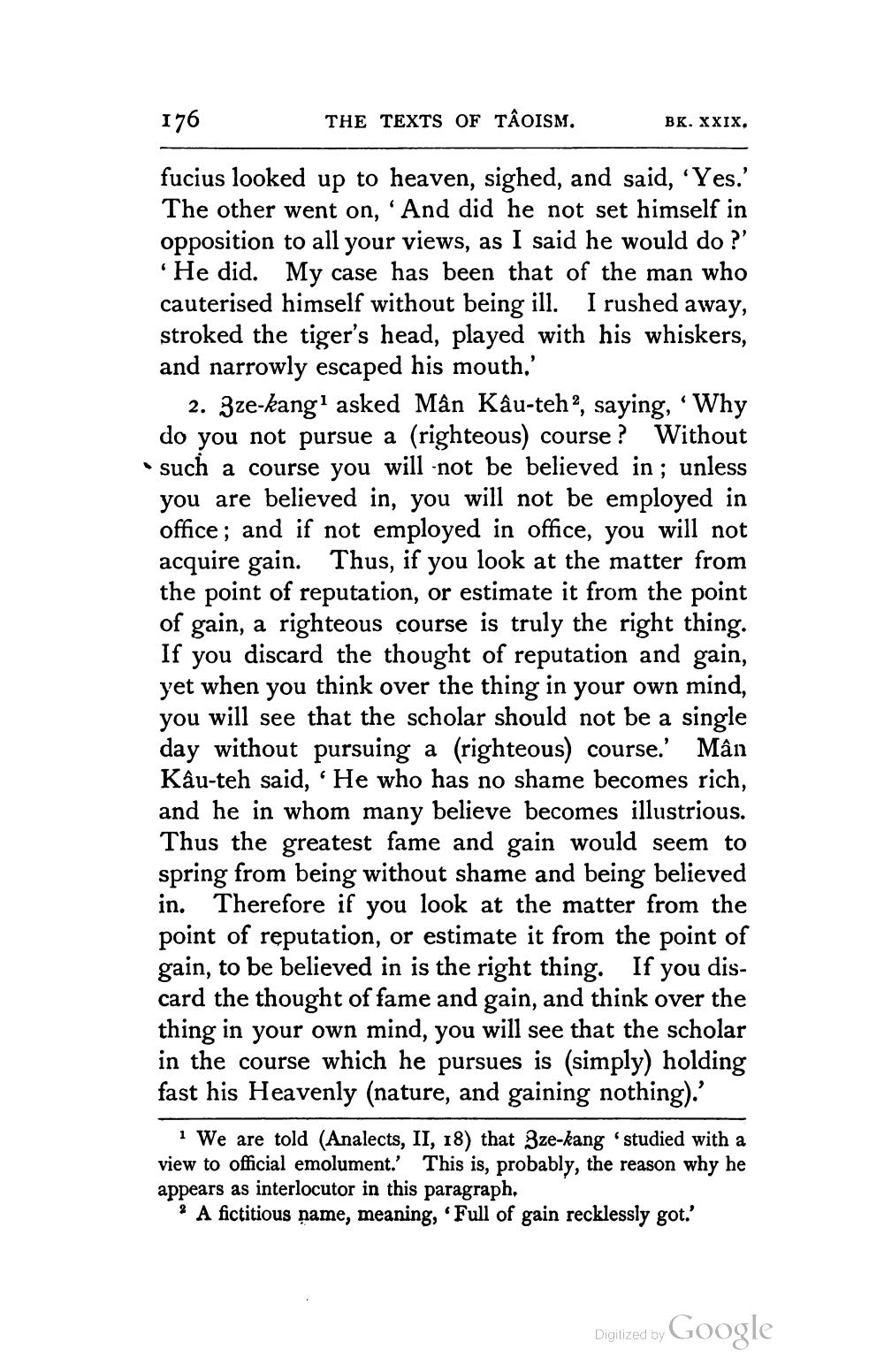________________
·
176
THE TEXTS OF TAOISM.
fucius looked up to heaven, sighed, and said, 'Yes.' The other went on, 'And did he not set himself in opposition to all your views, as I said he would do?' 'He did. My case has been that of the man who cauterised himself without being ill. I rushed away, stroked the tiger's head, played with his whiskers, and narrowly escaped his mouth.'
BK. XXIX.
you
2. 3ze-kang1 asked Mân Kâu-teh2, saying, 'Why do you not pursue a (righteous) course? Without such a course you will not be believed in; unless you are believed in, you will not be employed in office; and if not employed in office, you will not acquire gain. Thus, if you look at the matter from the point of reputation, or estimate it from the point of gain, a righteous course is truly the right thing. If discard the thought of reputation and gain, yet when you think over the thing in your own mind, you will see that the scholar should not be a single day without pursuing a (righteous) course.' Mân Kâu-teh said, ' He who has no shame becomes rich, and he in whom many believe becomes illustrious. Thus the greatest fame and gain would seem to spring from being without shame and being believed in. Therefore if you look at the matter from the point of reputation, or estimate it from the point of gain, to be believed in is the right thing. If you discard the thought of fame and gain, and think over the thing in your own mind, you will see that the scholar in the course which he pursues is (simply) holding fast his Heavenly (nature, and gaining nothing).'
1 We are told (Analects, II, 18) that 3ze-kang 'studied with a view to official emolument.' This is, probably, the reason why he appears as interlocutor in this paragraph,
2 A fictitious name, meaning, 'Full of gain recklessly got.'
Digitized by Google




